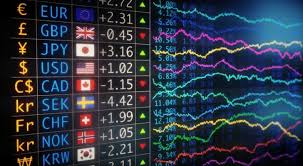Is Forex Trading Halal or Haram Understanding the Principles 1929519063
posted Kas 09 2025

Forex trading, which involves the buying and selling of currencies on the foreign exchange market, has gained immense popularity over the last few decades. As with any financial activity, especially one that can have significant implications on one’s financial wellbeing, it is crucial to examine the ethical and religious considerations surrounding it. This article aims to explore whether forex trading is considered halal (permissible) or haram (forbidden) within the Islamic worldview, providing insights on the principles that underpin these rulings. To delve deeper into this topic, feel free to check forex trading halal or haram https://trading-terminal.com/ for additional resources and insights.
Understanding Halal and Haram in Financial Contexts
In Islamic finance, the concepts of halal and haram serve as guiding principles for individuals in their financial dealings. Halal refers to actions that are permissible under Islamic law (Sharia), while haram signifies actions that are forbidden. This division is critical for Muslims who wish to conduct their financial affairs in a manner that aligns with their beliefs.
Several principles characterize halal financial activities, including avoidance of interest (riba), excessive uncertainty (gharar), and unethical practices (maysir). These principles are derived from the Quran and Hadith and must be considered when evaluating whether forex trading is a permissible activity.
The Nature of Forex Trading

Forex trading is primarily speculative; traders aim to profit from currency fluctuations. Unlike traditional investments such as stocks or real estate that possess inherent value and generate profit through tangible output, forex trading relies heavily on brokerage models, which can raise concerns under Islamic finance principles.
According to some scholars, the leveraged aspect of forex trading, which allows traders to control large amounts of currency with relatively little capital outlay, can lead to excessive risk and speculation. This speculation may resemble gambling, which is clearly haram in Islam.
Arguments for Forex Trading Being Halal
There are, however, arguments supporting the view that forex trading may be considered halal under certain conditions. Proponents often cite the following points:
- Currency Exchange is Halal: According to Islamic teachings, exchanging one currency for another is permissible, provided that it is conducted promptly and without delay. This aligns with the principle of equality stipulated in the Hadith.
- Compliant Trading Platforms: Many modern trading platforms strive to provide Islamic accounts that comply with Sharia law, prohibiting the payment of interest on margin and overnight fees, which are typically associated with forex trading.
- Informative Analysis: Traders engage in research and analysis to make informed decisions, which can be seen as a form of responsible investing rather than sheer speculation.
Counterarguments: Why Forex Trading May Be Haram

Conversely, several arguments suggest that forex trading is haram, largely centered around concerns about speculation and uncertainty:
- Speculation and Gharar: The nature of forex trading often involves speculation on currency fluctuations, resulting in uncertainties (gharar) that can lead to losses, which is discouraged in Islam.
- Potential for Riba: Some trading practices may indirectly involve interest through leverage and margin trading, which could render the trading activity haram.
- Elements of Gambling: The highly volatile nature of the forex market may resemble gambling, as traders often aim for high returns based on chance rather than sound investment strategies.
Guidelines for Engaging in Forex Trading Responsibly
For those considering engaging in forex trading, adhering to Islamic principles while trading is essential. Here are some guidelines to ensure your trading activities align with halal practices:
- Choose Islamic Accounts: Opt for trading platforms that offer Sharia-compliant accounts to avoid any interest payments or hidden fees.
- Avoid Speculative Trading: Engage in trading practices focused on research, analysis, and strategy rather than impulsive and speculative trades.
- Limit Leverage: Be cautious with leverage, as it can amplify both gains and losses, increasing the risks associated with trading.
- Consult Scholars: Seek guidance from knowledgeable Islamic scholars to ensure your trading practices align with halal principles.
Conclusion: Navigating Forex Trading in an Islamic Context
In conclusion, the question of whether forex trading is halal or haram remains complex and subject to interpretation within the Islamic community. While some aspects of forex trading can align with halal principles, significant risks and ethical considerations must be taken into account. As with any financial endeavor, it is crucial for individuals to conduct thorough research, remain informed about market dynamics, and engage in practices that uphold their faith and financial ethics. Connecting with knowledgeable scholars and utilizing compliant trading platforms can pave the way for responsible forex trading that respects Islamic values.



